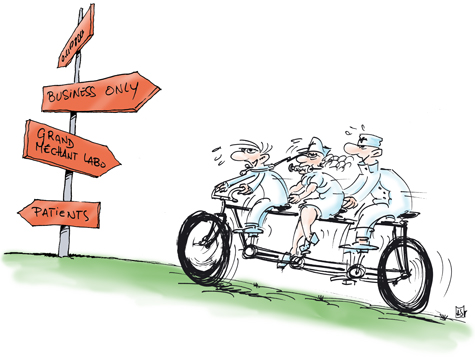 Imagine for a few minutes that you are a drug manufacturer. Your overriding concern would be tracking sales performance, developing market share, rapidly obtaining the necessary market authorisations at the lowest possible cost and, thus, increasing profitability.
Imagine for a few minutes that you are a drug manufacturer. Your overriding concern would be tracking sales performance, developing market share, rapidly obtaining the necessary market authorisations at the lowest possible cost and, thus, increasing profitability.
Back to reality. You are a healthcare professional, paid by your patient-clients (or their representatives) to provide care, advice, perspective, and to distinguish between the useful and the superfluous.
Your overriding concern is to strive for solid, well-founded analysis and recommendations. You have to distinguish between the exaggerated claims or even the outright lies of the industry's advertising on the one hand and, on the other hand, recognise real therapeutic advance.
Nine times out of ten, pharmaceutical "innovations" do not offer a real advantage: they do not help you better care for your patients. But once in ten times, the product provides some small additional benefit to patients.
Ignoring a useful innovation, for fear of being wrong, is just as harmful as abandoning an established therapy, to fall for the smoke-and-mirrors. It is not easy to distinguish what is relevant and useful. Constant critical analysis and investment in solid, well-adapted and independent research materials are needed, such as Prescrire’s articles and reference library in which you have placed your confidence.
But beyond the safeguards of access to independent information that are put in place, the fundamental question that every one of us faces is: just who are we working for, and at the end of the day, whose interests are we defending?
Pressure from the media, advertising and government is so pervasive and distracting that we can lose track of the fundamental aim of our profession: to help patients.
Best to stop and ask ourselves these questions.
©Prescrire 2008
Source: "Pour qui travaille-t-on ?" Rev Prescrire 28 (298): 566.
